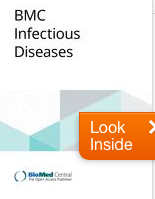Characterization of Sarcoptes scabiei cofilin gene and assessment of recombinant cofilin protein
as an antigen in indirect-ELISA for diagnosis
Yu Zheng,Ran He,Manli He,Xiaobin Gu,Tao Wang,Weimin Lai,Xuerong Peng and Guangyou Yang

Abstract
Background: Scabies impairs the health of humans and animals and causes heavy economic losses. Traditional diagnostic methods for scabies are inefficient and ineffective, and so far there is no commercial immunodiagnostic or molecular based test for scabies.
Methods: Here, we used recombinant Sarcoptes scabiei cofilin protein as an antigen to establish indirect ELISA. S. scabiei cofilin is highly homologous to Dermatophagoides farinae Der f 31 allergen (90 % identity). The S. scabiei cofilin gene was cloned and expressed in Escherichia coli to obtain recombinant protein. Western blotting and fluorescence immunohistochemistry were carried out, and we established an indirect ELISA method and detected 33 serum samples from scabies infected rabbits and 30 serum samples from naïve rabbits.
Results: Western blotting demonstrated that S. scabiei cofilin possessed good immunogenicity and fluorescence immunohistochemistry showed the S. scabiei cofilin is widespread in the splanchnic area of mites. In ELISA, a cut-off value of 0.188 was determined to judge experimental positive and negative serum values. Specificity and sensitivity of the ELISA were 87.9 and 83.33 %, respectively.
Conclusions: Recombinant S. scabiei cofilin showed potential value as a diagnostic antigen. The ELISA method established could be used in clinical diagnosis and provide experimental information in minimal or asymptomatic infection.
Keywords
Sarcoptes scabiei, Cofilin, Immunohistochemistry, ELISA
BMC Infectious Diseases, (2016) 16:21
Read full text: paperuri:(478cd574be75b0c794bfbab7f19d9f54)